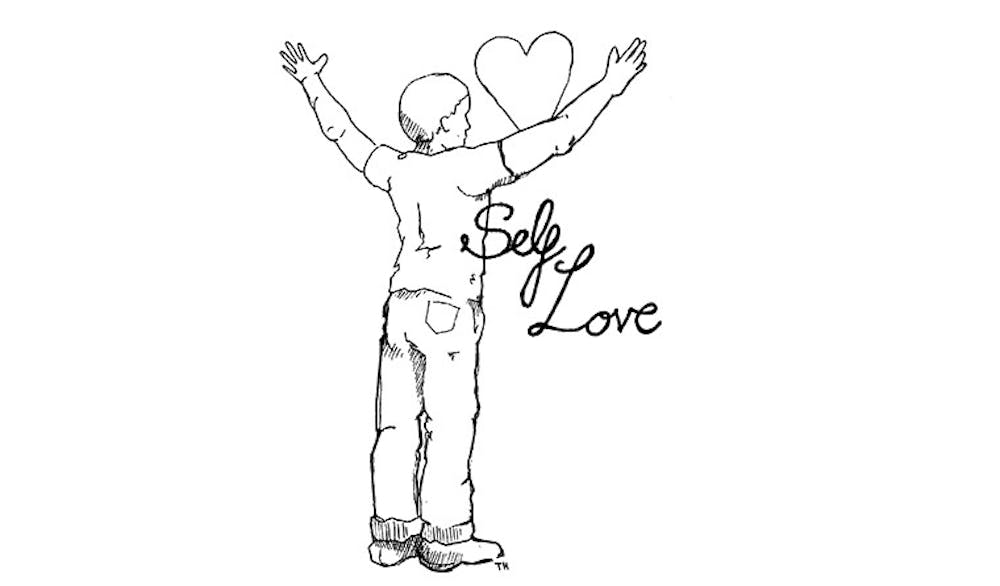It took me all of seventh grade to figure out how I felt about Darren. He was effortlessly charming and one of the most popular kids in the grade. I was popular to a degree, but my associations with the cool crowd were mostly vestiges of closer friendships from elementary school, which faded through the years. I initially admired Darren in a way that seemed like envy; I wanted to be him. Or so I thought. Before long, the feelings evolved into wanting to spend more time with him, in a completely platonic, early–teenage way. Then I realized I wanted to kiss him. Cue the stomach dropping thought of, “Oh shit, I’m gay.” Darren was the first boy I had a crush on, and the first in a developing pattern of completely unattainable crushes.
My coming out process wasn’t what I hoped for, but it wasn’t a disaster either. I didn’t get kicked out of the house or disowned when I told my religious parents, but there was also none of the satisfaction I imagine other parents feel after finally being told. The tears shed that day weren’t out of pride or happiness or love, but out of mourning for the son my parents thought they had. That was two years ago, and contrary to that ubiquitous and somewhat infuriating phrase surrounding the LGBT community, it hasn’t gotten better. I used to think that in order for my parents to come around and start accepting my sexuality, I needed to bring home a guy that they liked and whom they could see really cared about me. Easier said than done.
I've tried and consistently failed to forge serious relationships. The common denominator with all of the guys I've had feelings for was their complete unattainability. They were either in relationships, emotionally unavailable, clearly not interested in me or any combination thereof. It wasn’t until earlier this academic year after I started attending weekly therapy sessions at CAPS that I realized why I was so attracted to guys with whom I had no chance. Throughout last semester, my therapist and I were able to uncover some insightful truths. First, being gay in a heteronormative world is no doubt difficult, and the hardest part for me is how gay men are often emasculated by the rest of society. While Penn is extremely gay–friendly, there is still the occasional overheard “no homo” or use of the word “gay” as a synonym for lame or feminine. To compensate, I asserted my masculinity in other ways, namely suppressing my feelings for being too feminine or irrational. Over time, I started to adopt these negative feelings about myself, rendering me acutely susceptible to putting too much credence in the thoughts of others. A prime example of this is how I lost my virginity when I knew I wasn’t ready because I no longer wanted to have other people know I was a virgin. I let others’ perceptions of me dictate my actions because I didn’t feel enough self–worth to act how I wanted. Finally, I was always hung up on unattainable guys because the inevitable rejection was familiar and strangely comfortable due to how I constantly rejected my own needs. Putting my faith in guys I could never be with was the easy way out; I wouldn’t have to confront my suppressed feelings or low self–esteem because those relationships were going nowhere. When more available guys expressed interest in me, I’d push them away because I was afraid of combatting the years of damage, both self–inflicted and not, to my self–esteem.
Once I pinpointed the root of the problem, I started to battle my demons. In order to move past these stubbornly ingrained self–esteem issues, I had to show myself the patience, compassion and understanding that are so imperative for successful relationships. It isn’t easy, this burgeoning relationship with myself, but once I stopped dismissing my feelings as not masculine enough, I was no longer a victim to them. Because I was beginning to abandon the self–doubt and negative energy by simply being kinder to myself, I was more equipped to start listening to my own voice and satisfy my own needs over those of others. I learned that the most important relationship in life is the one I have with myself. If I can’t make myself happy, how can I expect anyone else to? How can I show someone true and unequivocal empathy and affection if I can’t show it to myself?
I always imagined spending Valentine’s Day making sure the guy I’m with knows how much he’s loved. I’d make his favorite food for dinner. I’d go over how his week’s been, highlighting the good and finding silver linings in the bad. I’d tell him that to me, he’s perfect and that I’m so proud of him for trying his hardest to be a better person every day and for facing life with a smile despite all he’s been through. This Valentine’s Day, I’m going to do all that for the guy I love the most: myself.







